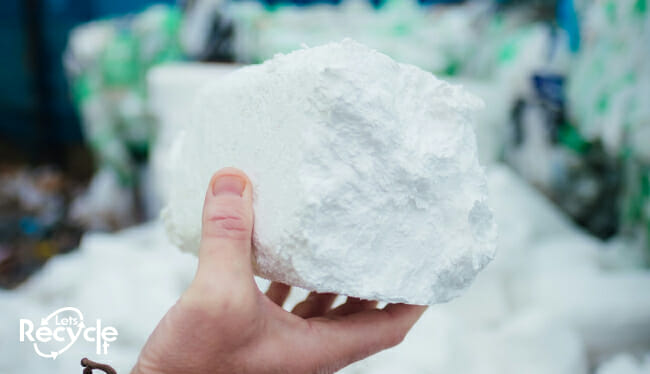Best Prices For Plastic Scrap
Sell Your Plastic Waste
Let's Recycle It's team of recycling experts and global network of fully accredited recyclers ensure the most profitable outcomes for you and the most sustainable outcomes for your plastic waste.
- Best Prices In the Market
- All Compliance Handled
- Traceable Waste Management
- Attentive Support Office
- Environmentally Conscious
- Secure Transactions
Materials we accept
PET Recycling
PET - PET is the abbreviation for Polyethylene Terephthalate, which is formed when ethylene glycol and terephthalic acid are combined. It is a clear plastic that is both strong and lightweight enough to be popularly used for food and beverage packaging, with close to all single-use plastic drinks bottles being made from PET. It is also a popular choice for a great many other products, such as bottles for hygiene products and even tennis ball cannisters.
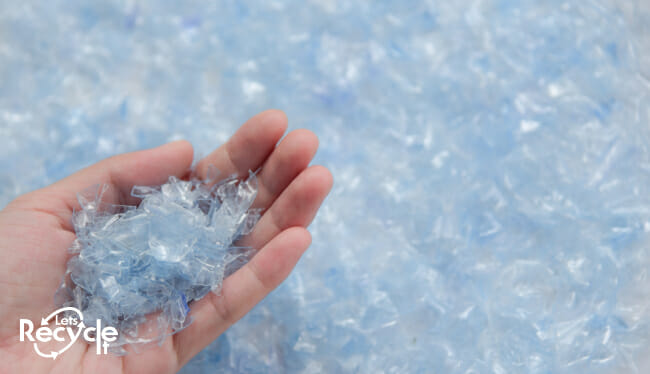
HDPE Recycling
HDPE - HDPE is the abbreviation for High-Density Polyethylene, which is made from the monomer ethylene. It is a thermoplastic, which means that it can become softer when heated in order to be moulded and will then harden when cooled without any alteration to the material’s properties. The material is incredibly versatile as it is lightweight, strong, malleable, impact resistant, weather resistant and long lasting. It is used across a wide variety of products over a range of different industries. For example, it is used for milk jugs, fuel tanks, piping, children’s toys, and even bread bags and cereal box liners.
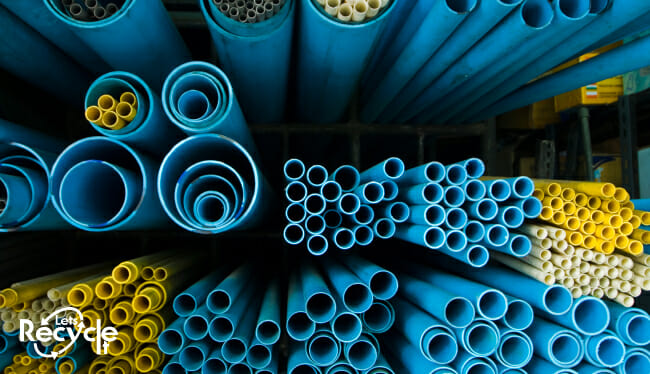
PVC Recycling
PVC - PVC is the abbreviation Polyvinyl Chloride. It is made by the combination of chlorine and ethylene to form the monomer vinyl chloride, which is then sequenced to make the polymer Polyvinyl Chloride. PVC is a very strong and tough material that can be easily shaped, which gives it many different uses in terms of what it can be manufactured into. PVC can also be made soft and flexible when mixed with certain additives. This means that whereas PVC can be used for construction, automotive and medical items, it can also be used for items such as polyvinyl flooring, clothing and upholstery.
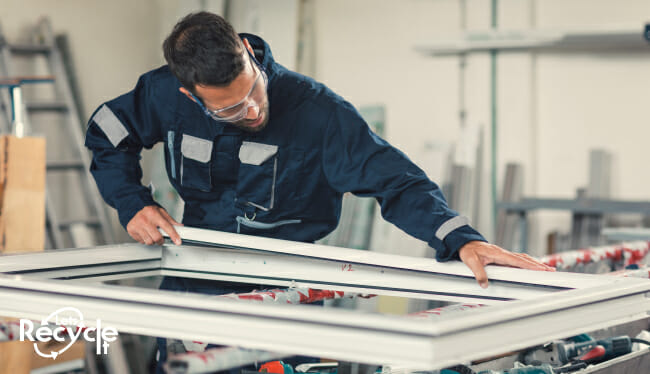
LDPE Recycling
LDPE - LDPE is the abbreviation of Low-Density Polyethylene, which is made from the monomer ethylene. LDPE is a thermoplastic, which means that when heated it can become softer in order to be moulded and will then harden when cooled without any alteration to the material’s properties. The plastic is lightweight, strong, impact resistant and chemical resistant. LDPE is an ideal material for the manufacturing of thin, flexible products such as plastic bags, shrink-wrap, stretch film, container lids, squeezable bottles and so on.
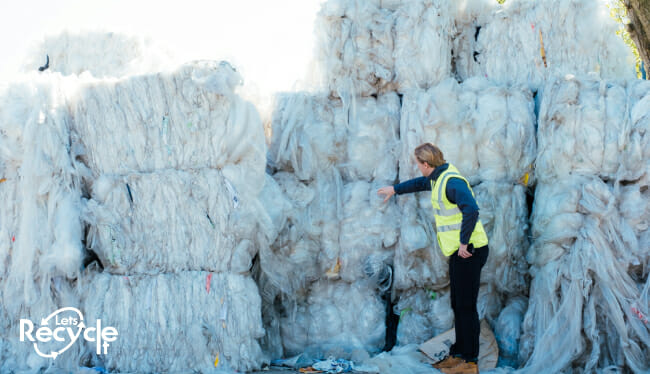
PP Recycling
PP - PP is the abbreviation of Polypropylene, which is a thermoplastic made from the monomer propylene. Being a thermoplastic means that when heated it can become softer in order to be moulded and will then harden when cooled without any alteration to the material’s properties. PP is tough, lightweight, chemical resistant and moisture resistant. The plastic is used for a wide range of products, such as packaging products, automotive parts and consumer goods.
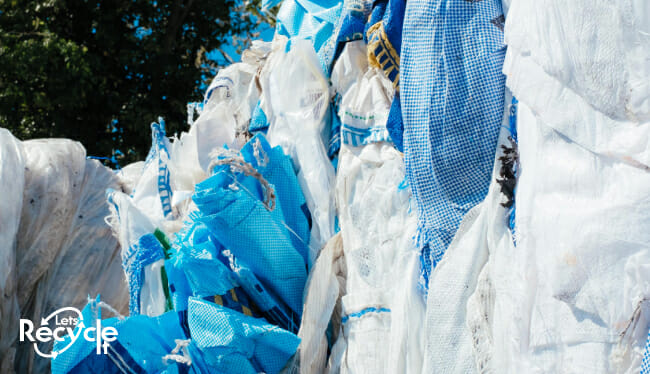
PS Recycling
PS - PS is the abbreviation of Polystyrene, a hydrocarbon polymer made from the monomer styrene. It is a thermoplastic, which means that when it is heated it can become soft enough to mould and then harden again when cooled. PS can come in the form of a solid plastic or a rigid foam. Solid PS is commonly used in items such as medical test tubes, household smoke alarm housings, CD cases and yoghurt pots. Foam PS is frequently used as packing material.
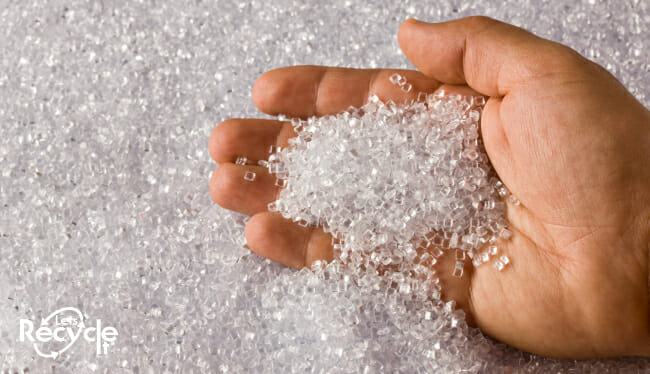
PC Recycling
PC - PC is the abbreviation for Polycarbonate. Polycarbonates are a group of thermoplastic polymers that contain within their chemical structure carbonate groups. PC is very strong, impact resistant, heat resistant, chemical resistant and lightweight. This plastic is commonly used in items such as parts for appliances, automotive parts, construction parts, medical gear, consumer products and food packaging.
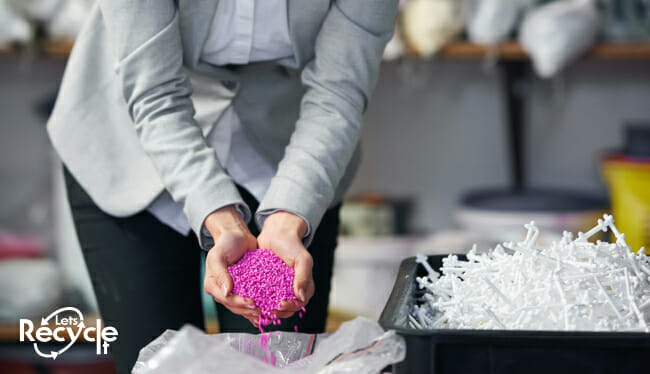
ABS Recycling
ABS - ABS is the abbreviation of Acrylonitrile Butadiene Styrene, a polymer made from the monomers acrylonitrile, butadiene and styrene. It is stiff, strong, impact resistant and chemical resistant. It is used in a number of different products such as computer parts, tools, plug socket faces and toys.
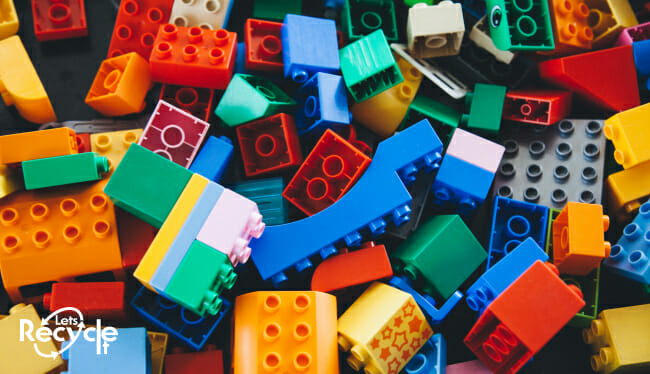
EPS Recycling
EPS - EPS is the abbreviation for Expanded Polystyrene. Polystyrene is a polymer made from the monomer styrene, and EPS is made from beads of Polystyrene expanded by gas. It is lightweight and tough and is good for use as insulation. It is used in a number of different products such as packaging material, furniture and sports equipment.
